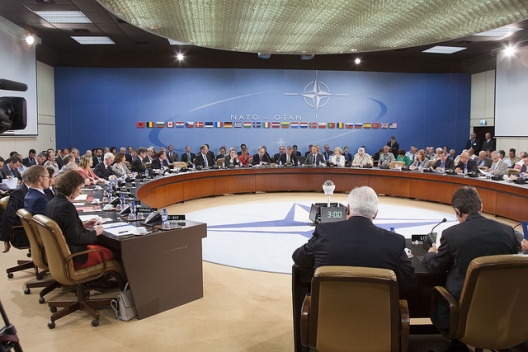 As the NATO ambassadors met in Brussels, Turkish President Recep Tayyip Erdogan effectively declared the three-year-old peace process with the PKK over. His air force bombed militants affiliated with the group in the country’s southeastern Kurdish heartland.
As the NATO ambassadors met in Brussels, Turkish President Recep Tayyip Erdogan effectively declared the three-year-old peace process with the PKK over. His air force bombed militants affiliated with the group in the country’s southeastern Kurdish heartland.
A PKK-affiliated Syrian Kurdish militia and Iraqi Kurdish forces have proved to be effective allies on the ground to a U.S.-led coalition battling Islamic State, and American and European diplomats worry the Turkish strikes could distract from the fight against the radical group.
NATO Secretary-General Jens Stoltenberg pledged solidarity with Turkey. But alliance members warned privately that Turkey’s response must be proportional, comments meant to urge restraint in attacks on Kurdish militants….
In Brussels, a NATO official said several allies used the meeting to urge the Turkish government to continue the peace process with the PKK. But there were signs of different views between Washington and its European allies. U.S. officials have gently urged Turkey to be careful in hitting the PKK, but stood by Ankara’s right to launch the strikes.
“We call on the PKK not to continue these attacks which are provoking the Turkish retaliation,” one senior U.S. administration official said on Tuesday. “And we’re also calling on the Turks to be judicious in the operations that they’re taking.”
U.S. officials put most of the blame for the expanding new confrontation with the PKK, which has taken responsibility for killing several Turkish security officials. After an escalation of violence in Turkey’s southeast last week, Turkish warplanes began airstrikes on the PKK’s mountain base in northern Iraq for the first time in four years.
“If the PKK did not launch a series of attacks in Turkey, Turkey would not be launching these attacks in northern Iraq,” said a second senior U.S. administration official.
While the U.S., like Turkey, considers the PKK a terrorist group, it has worked with the PKK’s Syrian Kurdish militia affiliate, the YPG, to coordinate airstrikes with them to retake the border town of Kobani and other locations from Islamic State….
In Washington, U.S. officials said Tuesday that they are fine-tuning plans for creation of the zone free of Islamic State in northern Syria. Administration officials pointed to the success the U.S. has had coordinating with the YPG in Syria and the Kurdish Peshmerga forces in Iraq to push Islamic State fighters on the defensive. Senior administration officials said they were open to working with a variety of moderate forces in Syria if the U.S. can work out deals.
“We have learned that, when we have a group on the ground that we can coordinate with, that can maneuver in coordination with our airstrikes through a very clear command-and-control chain, that we can be devastatingly effective against Daesh,” the official said, using an Arabic term for Islamic State.
Ege Seckin, a Turkey analyst at IHS in London, said there is a deep contradiction in what the U.S. is doing by agreeing to allow Turkey to go ahead with the airstrikes.
“U.S. officials are hoping the damage done to Islamic State will outweigh the damage done to the YPG,” he said.
Image: NATO meeting to discuss terrorists attacks in Turkey, July 28, 2015 (photo: NATO)
